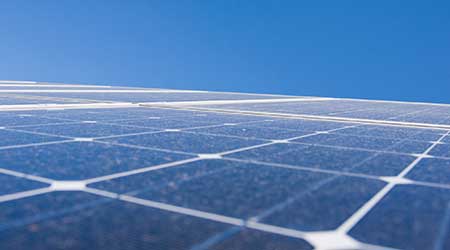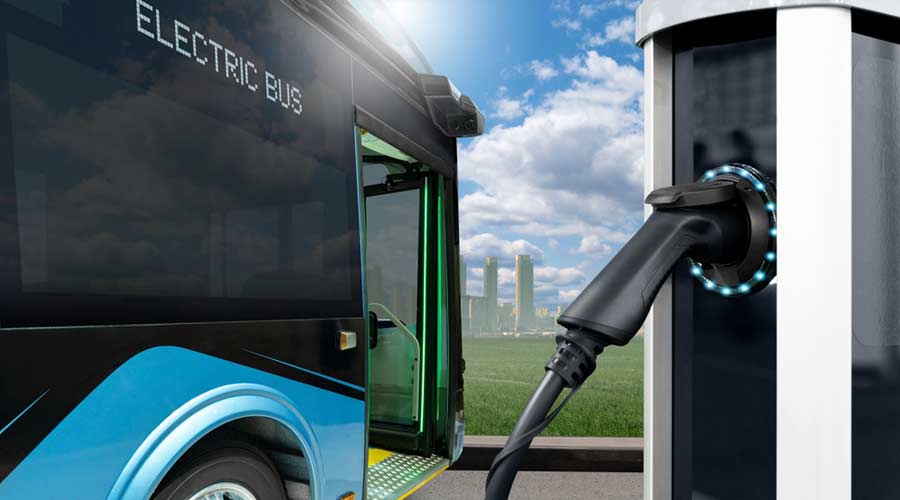How To Get The Most Benefit From a Solar Power Purchase Agreement (PPA)
As technology improves, solar installations are growing rapidly. Here's what you need to know about PPAs to ensure the arrangement works best for you.
Solar rooftop installations are growing by leaps and bounds. Indeed, according to Market Watch, the fastest growing job in the country from 2012 to 2016 was “solar photovoltaic installer.” Building owners and facility managers across the United States are exploring ways to install solar systems that effectively use rooftop space and save on energy bills.
A property owner or manager who is considering leasing or purchasing a rooftop solar system should be aware of the types of arrangements available and how to choose the right company. It is also important to understand pricing issues and be acquainted with contractual provisions unique to these types of arrangements.
Types of solar arrangements
There are generally three types of rooftop solar arrangements that may be available to building owners:
1. Solar Power Purchase Agreement (PPA)/solar lease, which is the focus of this article.
2. Purchase of a solar rooftop system.
3. A roof lease, where a building owner leases its roof to a solar developer without taking the power.
The last of these, the roof lease, is generally available only to owners of larger buildings, like shopping malls, larger office buildings, or airport hangars. Under this arrangement, the solar company simply leases the roof space from the property owner without providing it with any power from the system. The solar company sells the power to another offtaker, usually the utility in whose territory the property is located, and pays the property owner either a set monthly rent, a portion of the proceeds it garners from selling the power, or some combination of the two. A solar roof lease may be appropriate for a business that would like to profit from some otherwise-unused space and does not need the solar facility as a source of power.
Most building owners are interested in using a solar system as a means of reducing the costs of electricity, however, so for most the primary decision point will be whether to purchase or lease a solar system. There are good reasons to purchase, rather than lease, a system. First, while purchasing a solar system usually involves paying steep up-front costs, once the initial system has been purchased it can provide solar power at very little cost over the life of the panels. Additionally, the owner of the system is presently allowed to recover federal investment tax credits on its investment and, if a business, may be able to treat the solar panel system as a depreciable asset. There may also be state tax credits or funds available. For these reasons, despite the initial outlay, purchasing a solar system is generally cheaper than leasing. Second, under certain circumstances, it may be more difficult to sell a building that is encumbered by a solar lease. Having said that, it is usually possible to terminate a solar lease — albeit by incurring a substantial termination payment — or, if the lease has an option to purchase, exercise the option.
The main advantage of leasing is that it will usually involve no up front payments, enabling a building owner to enjoy a reduction in its monthly electricity bills without the substantial investment made by those who decide to buy. It is also a lower maintenance option for the owner: Because the solar company is profiting from the energy it sells to the building, it has every incentive to keep the system in good repair and ensure that it operates at maximum efficiency for the duration of the lease. Additionally, where a building owner chooses to lease a solar system, the solar company is responsible for obtaining any needed permits and coordinating the interconnection with the electric utility.
Before making the all-important choice of leasing versus owning, it is important to do the math. Understand the cost of purchasing the system, including the interest and other costs associated with taking out a loan to pay for it (if financing is required) and the costs of maintaining it (including additional insurance costs), reduced by available tax credits and other incentives. Then calculate the reduction in electricity bills that the system will generate to determine how soon the system will pay for itself. Likewise, calculate the amount saved on electricity over the term by leasing and attempt to value the ability to avoid the responsibility of repairs or maintenance of the system. Both ownership and leasing of solar systems have value: You need to determine which is right for you.
Choosing the right company
Once a property owner decides to go solar, the first step is to choose the right solar company. Before signing with a company that will provide your building with solar power, obtain quotes from several different providers. Cost, of course, is an important consideration, but should not be the only (or even the driving) factor. Even more important is the company’s experience in building similar systems and its technical expertise. Be sure to ask whether the company has developed projects of the same size and configuration that will be needed for your property.
It is also critical to understand the solar company’s permitting experience. While a solar company may have experience permitting projects in different areas of your state, it is preferable that it have experience with the specific electric utility that services your building. That kind of experience can make the interconnection and permitting process move more quickly.
Any reputable solar company should be able to provide you with references from prior and existing customers. Be sure to check them, and do your own interviews with any other customers you may know. When speaking with those customers ask, among other things, how the company handled any setbacks in the process, or dealt with any errors. As this will be a long-term relationship, you want to know up front how the company addresses mistakes.
Also important is the quality of the solar panels and other equipment that will be installed. This is a key consideration, as you want the system to provide the greatest output for as long as possible. Finally, before signing any agreement, be sure to check how long the company has been in business, its ability to finance the project, and its completion record on similar projects.
Related Topics:














